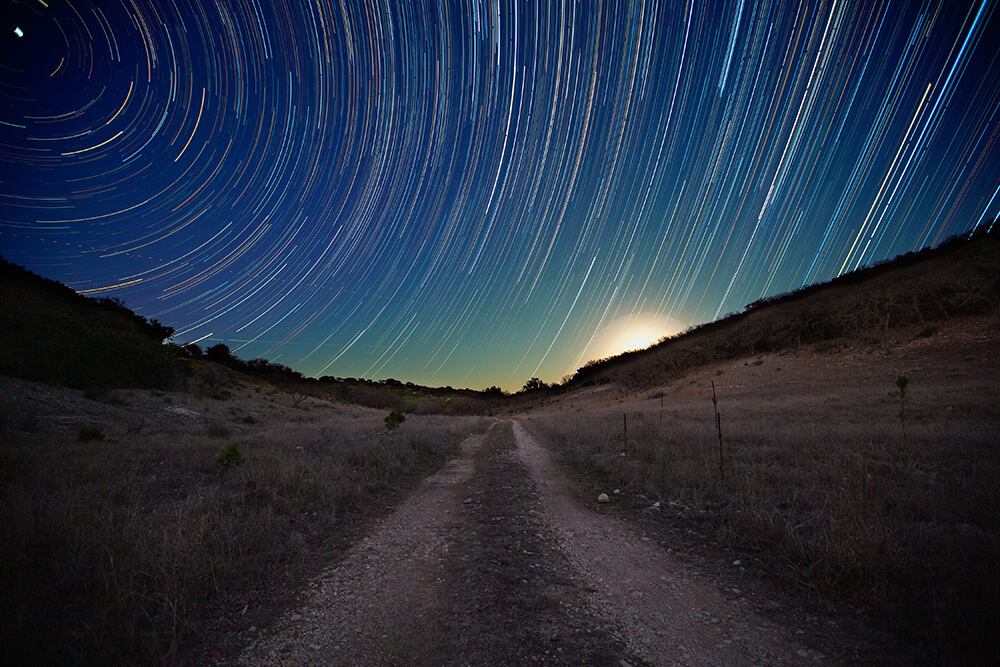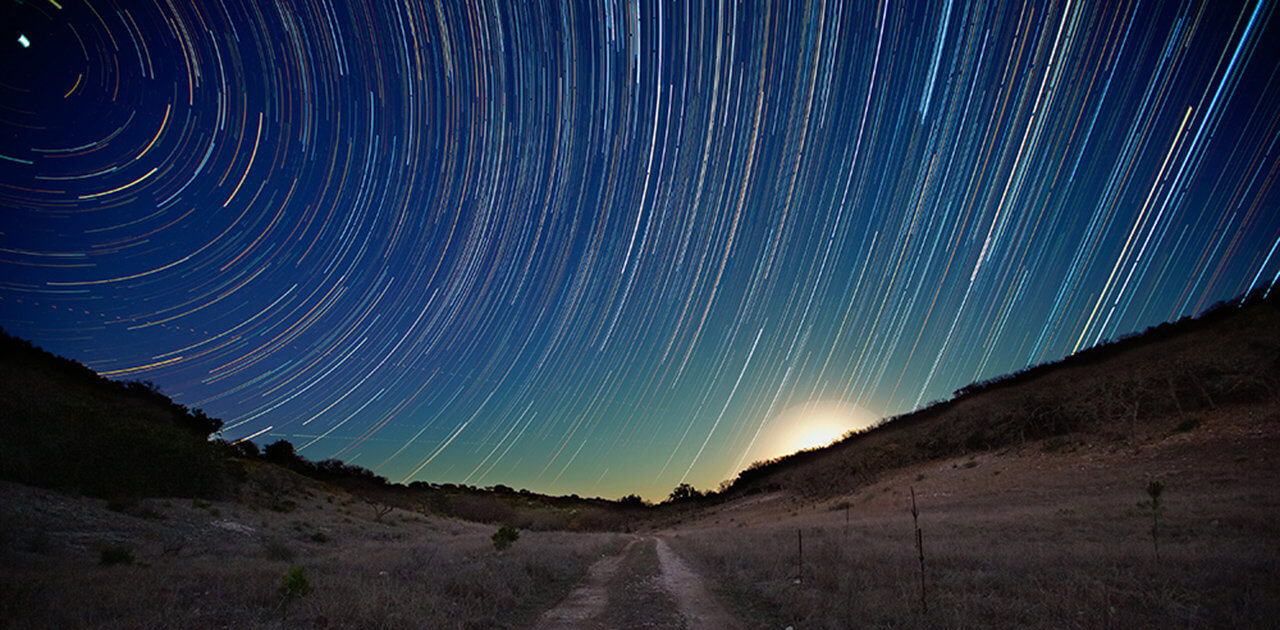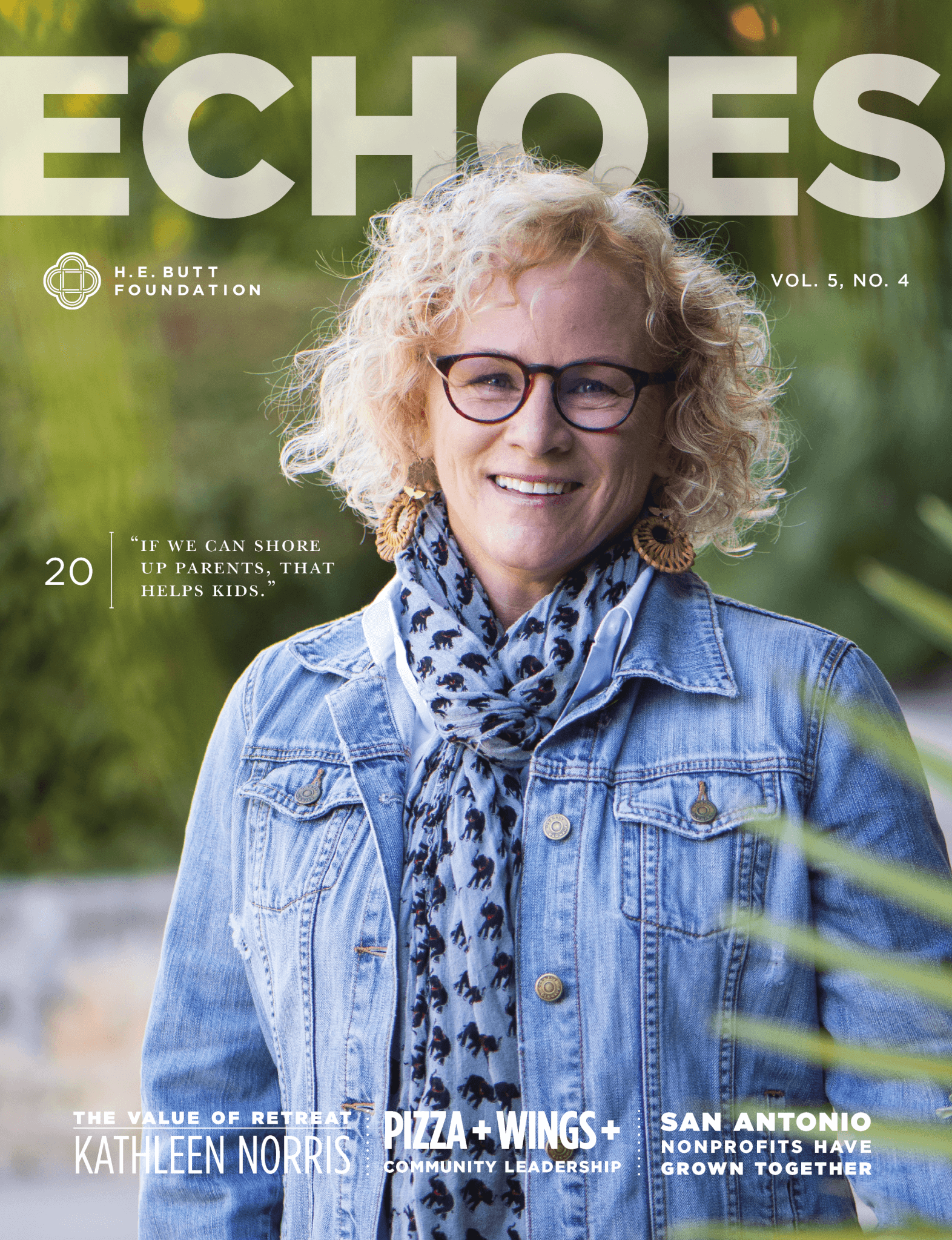

When campers see the stars in the Frio Canyon, they, like the magi, rejoice with exceeding great joy. They puzzle over their place in the universe, the smallness of our planet, the smallness of our own bodies and the shortness of our lives.
But light pollution across the world means only two out of ten people on earth can see the Milky Way, according to the International Dark Sky Association.
So it’s a big deal when campers lying on their backs at Singing Hills Playfield look up and ask, “Is that the Milky Way? That fuzzy band of white?” It is. And camp leaders enjoy explaining what it means to be looking at one arm of our spiral galaxy—100 billion stars, circled by billions more planets, all of it 100,000 light years away.
“The night sky in the Canyon may provide the best view of the cosmos that many of our guests have ever seen,” says Kevin Wessels, associate director of property planning and stewardship for the H. E. Butt Foundation.
Kevin, who is leading the Foundation’s dark sky efforts, says the Canyon often has so many guests that its “population” is larger than most rural towns in America. He and Canyon Operations are working hard to preserve the dark sky for guests with a four-part plan to reduce light pollution: installing light shielding, lowering light temperatures, lowering light intensity, and setting timers that automatically turn the lights off each night.
Efforts like these ensure campers will continue to see in the Canyon sky a depth of stars like they never see at home.
The stars give us perspective of light years and cosmic expanse. They keep us wise, so we can remember to make our days count and worship something much larger than ourselves.
H. E. Butt Foundation cohort aims to help San Antonio churches and church leaders break mental health stigmas.
Hilary Monford has been partnering with Laity Lodge Family Camp to offer accessible counseling and therapy to families during a particularly difficult year.
